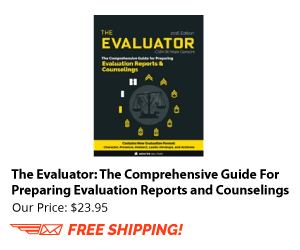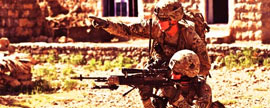There is no requirement under AR 623-3 that requires your new chain of command to review your NCOERs. AR 623-3 states that each report is a stand alone report Therefore there is no reason for a leader to request your reports.
Usually leaders will request reports like this when they are interviewing a leader for a job… for example a 1SG position. This allows them to assess you over a period of time if they do not know you. Some leaders will ask for a copy of your last NCOER to verify the new rating period and ensure it matches up with DA records. With the electronic age there is no need for this step unless your records have bad data. Again there is no requirement to share a previous report with other individuals.
AR 623-3 para 1–12. Access to evaluation reports
Access to Army evaluation reports at HQDA is limited to the rating officials on the evaluation report, the rated Soldier, the BN or BDE S1, or administrative office servicing the unit responsible for preparing and processing the evaluation report, and/or those authorized to use evaluation reports for personnel management purposes. Requests to access evaluation reports prepared by another unit or rating chain officials cannot be granted.
Leaders that request access to previous evaluation reports are usually attempting to:
1. Verify administrative data to ensure the unit records are correct for the next reporting cycle.
2. They may want to review these records in order to assist you in growing as a leader
You might consider the following.
1. Not providing the reports
2. Providing the reports with all the information blacked out with the exception of the reporting dates and duty description.
3. Asking the leader to provide The regulation extract that directs this action or allows this action.
4. Submit a memorandum to the Leader requesting this action. It might state something like.
a. CSM____ this memorandum is in response to your request 0f ___{INSERT TIME/DATE} for me to physically provide you a copy of my last 5 NCOERs. You stated was this action was to verify I had received my NCOERs and that the reports had processed correctly.
b. I greatly appreciate your concern for my career and professional development. Please allow this memorandum to serve as notification I have checked and verified this information
c. The reports in question are positive in nature and reflect my performance during the rated time associated with the specified rating periods.
d. Please let me know if you require any additional information.
5. Provide a copy of the NCOER even if it is a bad report. It is much better to be upfront and honest then to hide something. Usually in the Army System hiding an issue will eventually result in the issue coming to light.
The down side to any of these actions is the leader may see your lack of compliance as you trying to hide something. Only you can decide the best course of action. It is likely the leader does not understand the regulation and is just following a standard they were introduced to early in their career. I understand that senior leaders may have access to your records through the Battalion S-1 and the Soldier’s Army Military Human Resources Record (AMHRR). They may also have access if they are sitting on a DA Selection board and evaluating your records.
If there is really a big issue on concerning the subject contact your local JAG and ask them for a legal on opinion on whether the command has a right to see these files. As ECK brought to my attention, they most likely do have a right to the documents as they deal with your military service record and I can see it from that point of view.
I do not personally like the idea of the command reaching back and reviewing copies of previous NCOERs but there are times that I believe it is prudent for the chain of command to do so.
However you decide to proceed ensure your response is factual, unemotional, and professional.
Extract of AR 623-3
3–16. Evaluation parameters
Rating officials’ evaluations of a rated Soldier will be limited to the dates included in the rating period of an evaluation report.a. Each evaluation report will be an individual stand-alone evaluation of the rated Soldier for a specific rating period. An evaluation report will not refer to performance or incidents occurring before or after the period covered or during periods of nonrated time. The determination of whether an incident occurred during the period covered will be
based on the date of the actual incident or performance; it will not be based on the date of any subsequent acts, such as the date of its discovery, a confession, or finding of guilt, or the completion of an investigation. Guidance concerning modification of previously submitted OERs is in paragraph 3–36.
Did you find this information useful? I would appreciate your feedback!
TOP












